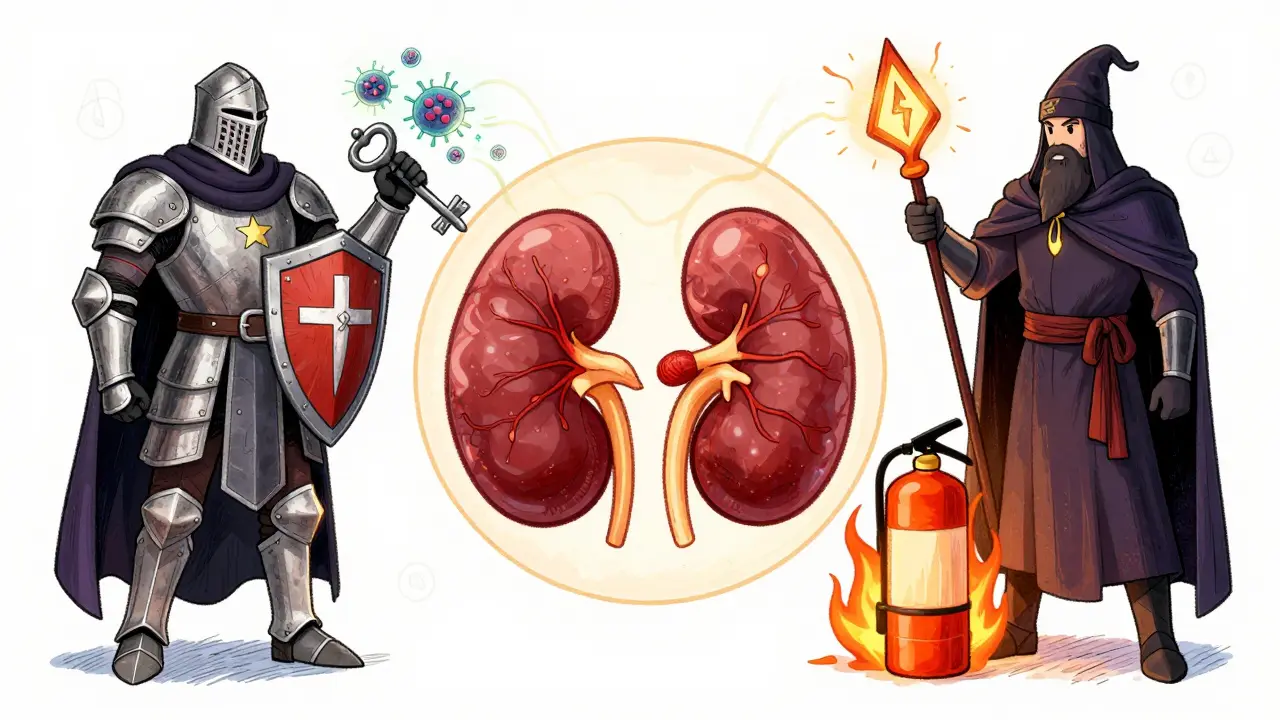Understanding Immunosuppression: Simple Facts and Helpful Tips
Immunosuppression means your immune system isn’t working at full strength. When this happens, your body has a harder time fighting off infections and diseases. This can be caused by certain medications, medical conditions, or treatments like chemotherapy. Knowing why your immune system is weakened helps you stay safer and make better health choices.
People on immunosuppressant drugs, like those used after organ transplants or for autoimmune diseases, need to be extra careful. These medications lower your immune response on purpose to stop your body from attacking itself or rejecting transplants. But this also means germs that normally wouldn’t cause problems can make you sick. Practicing good hygiene and avoiding close contact with sick people becomes important.
Common Causes and Effects
A few reasons can lead to immunosuppression. Besides medications, illnesses like HIV or certain cancers naturally weaken immunity. Sometimes, severe stress or poor nutrition plays a role too. The result? You might catch colds easier, or infections might stick around longer and get worse.
One key thing to remember is that immunosuppression isn’t always permanent. Sometimes it’s temporary, like after chemotherapy, and your immune strength recovers with time. Your doctor can guide you on what signs to watch for and how to stay protected while your immune system is down.
Staying Safe and Healthy
To reduce risks, focus on boosting your overall health where you can. Eating balanced meals, staying hydrated, resting well, and managing stress all support your natural defenses. Vaccinations are often recommended but talk to your healthcare provider first because some vaccines aren’t safe during immunosuppression.
Also, be mindful if you notice new symptoms like unusual fevers, persistent fatigue, or infections that don't clear up quickly. These need prompt medical attention since your body can’t always handle infections like it normally would.
Immunosuppression isn’t something to take lightly, but understanding it helps you make smarter choices. Managing your environment, following your treatment plan, and staying alert can keep you safer and healthier every day.

Transplant Immunosuppression: How Tacrolimus, Mycophenolate, and Steroids Work Together After Kidney Transplant
Learn how tacrolimus, mycophenolate, and steroids work together to prevent kidney transplant rejection, their side effects, dosing rules, and what’s changing in modern transplant care.

Prograf: Comprehensive Guide to Tacrolimus, Dosage, Side Effects, and Patient Tips
Learn all about Prograf (tacrolimus) for transplant care, including uses, dosage, side effects, and real-world tips—explained in plain language.





